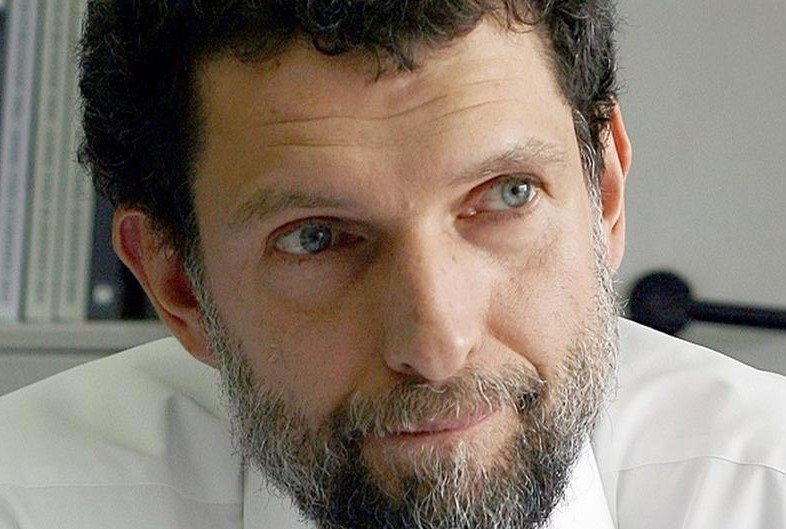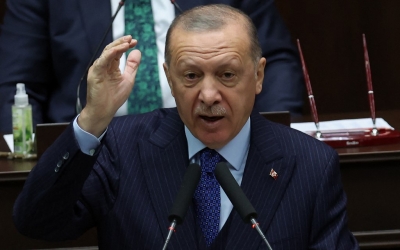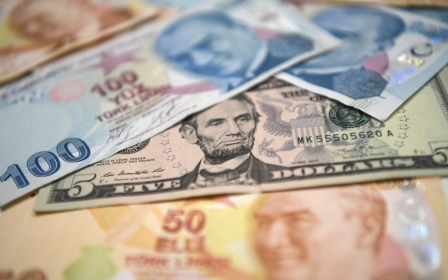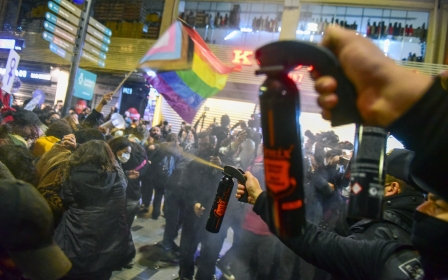Kavala trial: Rights groups ask Council of Europe to take action

Rights groups have called for the Council of Europe (CoE) to begin infringement proceedings against Turkey after the country once again defied calls to release imprisoned campaigner and philanthropist Osman Kavala.
On Friday, a Turkish court ruled that Kavala must remain in jail despite the ongoing calls for this release from the country's allies.
Demonstrators, including a number of opposition MPs, gathered outside the Istanbul Courthouse in Caglayan to call for the release of Kavala and 51 other defendants who are facing charges linked to the 2013 Gezi Park anti-government protests, which saw millions taking to the streets of Turkey in opposition to then prime minister Recep Tayyip Erdogan.
The hearing in Istanbul comes a month after the government threatened to expel 10 ambassadors who called for the Kavala's release, leading to a major diplomatic row that negotiations appeared to have calmed.
Friday's decision to continue to ignore rulings from the European Court of Human Rights (ECHR) that Kavala - who has yet to face conviction despite four years in prison - should be freed will increase pressure on the Council of Europe to take action, however.
New MEE newsletter: Jerusalem Dispatch
Sign up to get the latest insights and analysis on Israel-Palestine, alongside Turkey Unpacked and other MEE newsletters
'Turkey’s justifications for refusing to free Osman Kavala from prison have run out of steam'
- Nils Muiznieks, Amnesty International
In September, the council's committee of ministers said it would notify Turkey ahead of a meeting in Strasbourg on Tuesday that it would begin penalising the country, potentially suspending membership rights.
Kavala, a businessman who founded a number of organisations advocating inter-communal dialogue and democratic reforms in Turkey, has been in detention over allegations of involvement in mass anti-government protests in 2013 and the 2016 coup attempt.
In 2019 the EHRC ruled that Kavala's detention was political and called for his immediate release, a request which has been repeated numerous times but has so far been ignored by Turkey.
In a statement on Friday, Amnesty International said Kavala had been subjected to "barely disguised political persecution" and called for the Council of Europe to take action.
“Turkey’s justifications for refusing to free Osman Kavala from prison have run out of steam,” said Nils Muiznieks, Amnesty international’s Europe director, in a statement.
“Turkey’s refusal to implement the binding judgment of the Europe Court is an unconscionable violation of Osman Kavala’s right to liberty and represents a serious threat to the integrity of the European human rights system."
The first step in any infringement process would involve referring the question of whether Turkey had abided by the court's judgment to the EHRC and, if the court finds a violation, the committee of ministers can consider a number of penalising measures including suspending Turkey's membership or voting rights at the CoE.
Kavala was initially prosecuted for supporting the Gezi Park protests, but was later acquitted of these charges in February 2020 - however, he was immediately taken into police custody again as part of another investigation linked to the July 2016 coup attempt.
Growing outrage
Kavala's imprisonment, which has been ongoing for 1,487 days, has provoked harsh condemnations both domestically and internationally.
Last month 10 embassies - including the US, France and Germany - took the unusual step of declaring that Kavala's imprisonment "cast a shadow" over Turkey's democracy and judicial system.
In response, Erdogan accused the diplomats of trying to "teach a lesson" to Turkey and threatened to expel them.
One Western diplomat told AFP that Friday's court ruling was "unfortunate".
"I don't know what (the government) is thinking but (Turkey's non-conformity) will have consequences," the diplomat said speaking on condition of anonymity.
Then opposition leader Kemal Kilicdaroglu in September 2020 accused Erdogan of pursuing a personal vendetta against Kavala by ignoring the ECHR rulings.
"According to the constitution, the decisions of the ECHR have superiority over domestic law. Erdogan says they do not apply. Why?" he said during a meeting of his Republican People's Party (CHP).
Erdogan has branded Kavala the "red Soros of Turkey" in reference to his links to Hungarian-American philanthropist George Soros, who is accused in a number of countries of attempting to foment unrest.
Kavala's wife Ayse Bugra has described his imprisonment as "torture" and has cited concerns about the spread of the coronavirus pandemic in a number of Turkey's prisons.
"To have an idea about what my husband has been subjected to during more than 1,000 days of imprisonment, it is important to know the strange judiciary process through which he was arrested three times, released twice and acquitted once from different charges all based on the same investigation file," she told Middle East Eye in August 2020.
"He stays alone in a cell with a toilet and shower. He shares a small courtyard with another prisoner. He does not complain about the physical conditions and food - but then, he never complains anyway."
Middle East Eye delivers independent and unrivalled coverage and analysis of the Middle East, North Africa and beyond. To learn more about republishing this content and the associated fees, please fill out this form. More about MEE can be found here.





